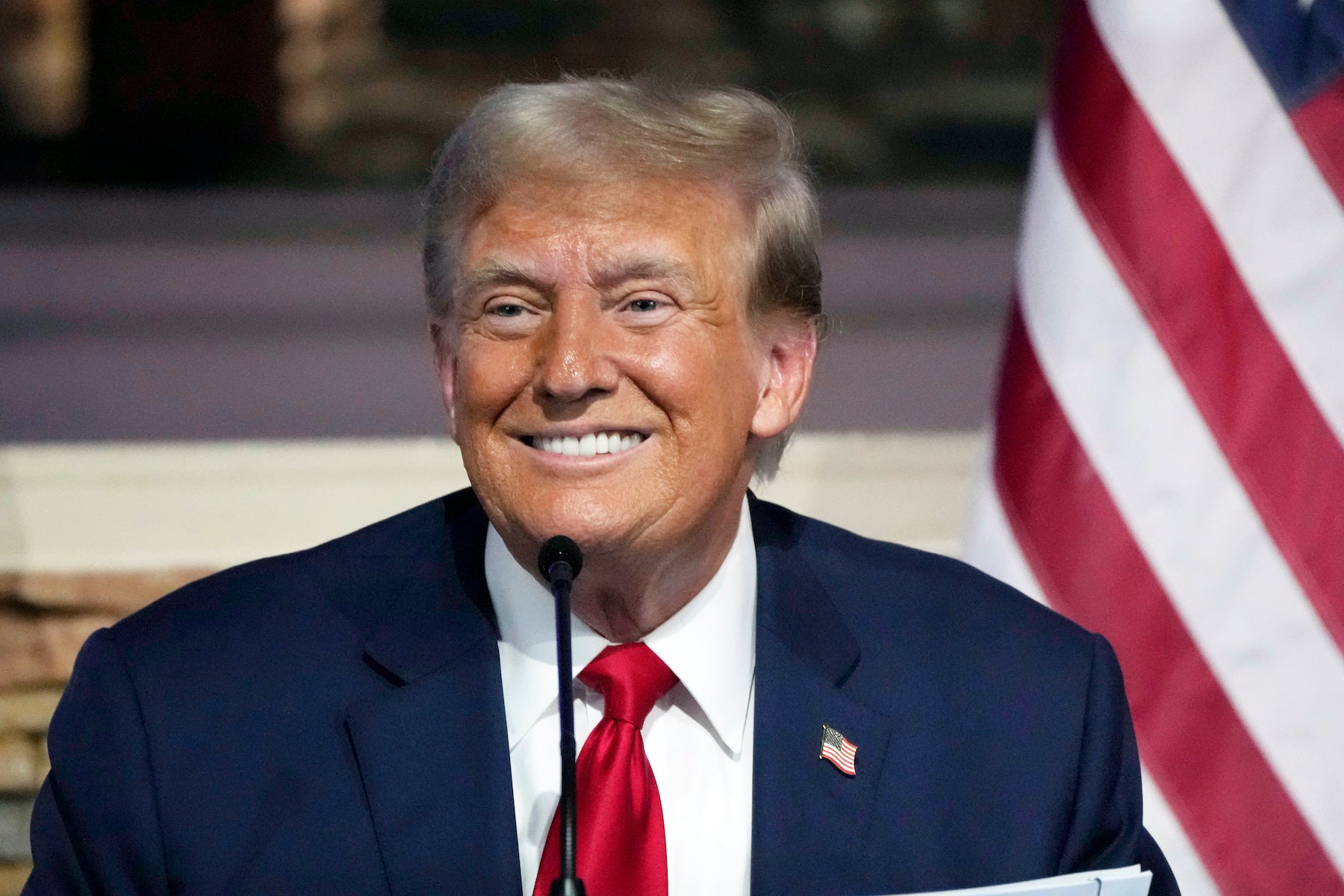
In a fiery and unapologetically Trumpian message that is already rippling across political and tech circles alike, President Donald Trump has issued a bold statement regarding the recent wave of violence directed at Tesla. Following a string of reported arson attacks and other destructive acts targeting Tesla vehicles and showrooms, Trump didn’t mince words about what he believes should happen to the perpetrators.
His vision? A one-way ticket for these so-called “sick terrorist thugs” to the now-infamous prisons of El Salvador.
Posting Friday morning on Truth Social, Trump unleashed a characteristically brash warning:
“I look forward to watching the sick terrorist thugs get 20 year jail sentences for what they are doing to Elon Musk and Tesla. Perhaps they could serve them in the prisons of El Salvador, which have become so recently famous for such lovely conditions!”

The comment, dripping with sarcasm and political undertone, appears to reference a controversial agreement his administration has with El Salvador, aimed at deporting certain criminal elements—namely alleged Venezuelan gang members—to serve their sentences in the Central American nation. But now, it seems Trump is proposing to extend this policy to a new group of offenders: those who dare to sabotage what he views as a symbol of American innovation and power—Tesla.
Trump’s suggestion wasn’t merely rhetorical. Behind the headline-grabbing comment lies a very real political alignment and strategy. Trump and Elon Musk have become increasingly intertwined in recent years—not just as public figures, but as allies in reshaping the future of both technology and governance.
Musk, the world’s richest man and CEO of Tesla, is a notable supporter of Trump’s presidential campaign, both ideologically and financially.
Their partnership has borne the fruit of initiatives like the Department of Government Efficiency (DOGE)—a tongue-in-cheek acronym that belies its aggressive agenda to slash federal spending and gut bureaucratic bloat. Musk, who spearheads DOGE, has positioned himself as a kind of techno-reformer, while Trump provides the political muscle to back the movement.

But not everyone is cheering. As Musk’s political visibility has surged, so too has the backlash. Tesla has become a target—not just of economic critics or environmentalists—but of violent actors, according to the Trump administration.
In the past few months, Tesla properties have been subject to arson, vandalism, and what some officials are calling acts of domestic terrorism.
The President isn’t taking it lightly.
Labeling the attacks as domestic terrorism is no small move. It carries both legal and symbolic weight, signaling that the federal government is prepared to treat the offenders not as petty criminals, but as enemies of the state. And in Trump’s eyes, harming Elon Musk—or Tesla by extension—is no different than an attack on the future of America itself.
That’s why the suggestion to deport these offenders to El Salvador is more than a punchline. It’s a power play. El Salvador’s prisons, internationally infamous for their harsh, brutal, and overcrowded conditions, have become symbolic of a “zero tolerance” approach to criminality. Rights groups have condemned them. Trump, clearly, sees them differently.

By sarcastically calling the prisons “lovely,” Trump is signaling to his base that he is not interested in the niceties of human rights critiques. He wants results. He wants punishment. And he wants to send a message loud and clear: If you mess with Tesla, you’re messing with Trump—and there will be hell to pay.
For Musk, the sudden uptick in hostility has been a mix of validation and concern. On one hand, it proves the disruptive power of his political alignment. On the other, it threatens Tesla’s brand stability, especially with institutional investors who are more risk-averse.
Some Tesla shareholders have raised quiet concerns behind closed doors, fearing that the company may be caught in the crossfire of America’s increasingly volatile political landscape.
But the Tesla CEO has shown no signs of stepping back. In fact, sources close to Musk suggest he’s doubling down. His alignment with Trump isn’t just a political partnership—it’s a vision for the future. One where Silicon Valley doesn’t just innovate, but governs. Where the private sector doesn't whisper in Washington's ear, but takes the megaphone.

This isn’t just about burning cars or shattered showroom glass. Tesla has become a battlefield in a much larger war—between new power and old, between nationalists and globalists, between those who see government as the problem and those who defend it as the solution.
Trump’s statement, though predictably polarizing, underscores this divide. In his worldview, Musk is a hero of American greatness, an engine of innovation threatened by internal saboteurs. The violence against Tesla, therefore, is not random—it is ideological. And the solution is just as ideological: brutal, unapologetic justice delivered with flair.
By tying punishment to El Salvador’s notorious prisons, Trump isn’t just proposing a consequence—he’s staging a spectacle. A show of strength. A line in the sand.
Whether Trump’s wish to send Tesla’s attackers to El Salvador becomes a legal reality or remains rhetorical bravado, one thing is clear: the alliance between Trump and Musk is deepening, and the stakes are rising. With the 2024 election cycle in full swing, and Musk’s DOGE project making waves in D.C., Tesla is no longer just a car company. It’s a symbol.
And symbols, especially in American politics, draw fire.
For now, Trump’s message to Tesla’s saboteurs is unflinching: There’s a place waiting for you. It’s not in the luxurious corners of California or the activist circles of Portland. It’s in a concrete box in El Salvador—famous for its “lovely” ambiance.
In the Trump era, justice isn’t just served. It’s branded.
-1742447210-q80.webp)
-1742617088-q80.webp)
-1741415524-q80.webp)
-1742378209-q80.webp)